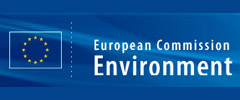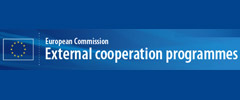WECF continues work towards climate change negotiations at Bonn inter-session (May 14-18)
What are the main issues discussed in the inter-session preparing for the next COP in Doha (26th Nov.-7th Dec. 2012)?
25.05.2012 |Sarah Rodriguez

The Ad Working Group on the Durban Platform for Enhanced Action (ADP) opened its first plenary session in Bonn and Parties were expected to engage in a constructive discussion to create a credible work plan to reach an agreement by 2015. Other important issues were put forward either in workshops or informal contact groups, such as article 6 of the Convention and the critical role played by public participation, the concept of equity and also the question on long-term finance.
The Women and Gender Constituency, in which WECF is an active member, kept on taking a stand to push towards further gender sensitive measures throughout the climate change process.As usual, a lot of issues were on the table that had to be discussed and advanced in regard to the next COP in Doha this year.
Among those issues, equity seems to be at the heart of the discussion after being overlooked for a long time. In Durban, Parties agreed that there was an increase need for sharing the burden efforts to reduce green house gas emissions. The problem is that no common definition exists on what equity would mean in terms of the role expected from each country in mitigating climate change. The main challenge towards equity is to find a way to build a common understanding while dealing with the urgent global climate crisis.
Another important point discussed during the first week of negotiations concerns the article 6 of the Convention. An informal contact group was appointed and had to prepare a draft proposal for Doha work program on Article 6. A joint intervention of the Youth and Women Constituencies was delivered in order to address the critical role played by public participation until now. It was reaffirmed that broad public participation (especially of women, youth and local communities) in climate change policymaking actions is crucial to combating climate change.
Both equity and public participation are embraced by the question on long-term finance which was also the topic of an informal contact group. Indeed COP 17 decided to undertake a work program on long-term finance in 2012. Countries suggested that the report should propose a decision on the most promising sources and that finance should address both mitigation and adaptation issues.
WECF INSIGHTS ON THE SECOND WEEK OF NEGOTIATIONS IN BONN AND THE UPCOMING CONVENTION OF THE PARTIES 18 (COP 18)
Did the Parties move their work forward in light of the next COP in Qatar?
WECF continues to report back the outcomes of the UNFCCC negotiations that happened over the past two weeks in Bonn. As stated in the previous article, the first week started quite slowly. The discussions were mainly blocked with procedural issues related to the Ad Working Group on the Durban Platform for Enhanced Action (ADP). The agreement on the agenda as well as the election of the chair and co-chair were constantly postponed until Friday 25th May, the last day of negotiation. The purpose of such inter-sessions is for Parties to prepare draft texts in regard to the upcoming COP. It seems that much more work will need to be done in preparation for the additional session of the Ad Working Groups in Bangkok (30th August to 5th September), the occurrence of which is still to be determined.
The first session of the new body, the ADP, was supposed to set out a work plan for achieving the result that all Parties agreed on in Durban, namely a text implementing a second commitment period to be drafted before 2015 and to enter into force in 2020, therefore amending the Kyoto Protocol (KP).
Nevertheless, the process was blocked for several days as Parties could not agree on the agenda nor on the election of the chair and co-chair. In Durban, Parties came to the decision that a new instrument was needed, but they did not manage to find a consensus on the contents. In Bonn, Parties were stuck at the same point. Views differ mostly on the following two issues: whether ambition between now and 2015 will be negotiated under the old Long-term Cooperative Action (LCA) and KP bodies or as part of the new ADP; and whether ambition should only concern mitigation or if it should also include finance and technology. A large number of developing countries, considered by some developed countries as “blockers”, shared their fear that many developed countries are trying to use the ADP to jump from the legally binding system. According to them, the ADP should be based on the legally binding system established previously under the UNFCCC. On the last day of negotiations, Parties finally agreed on the agenda and chairs were elected (India and Norway).
Much time was spent on procedural issues; however, urgency for increased action and results is increasing. First, the International Energy Agency recently published that in 2011 the CO2 emissions from fossil fuel combustion reached a record of 31.6 Gigatones, an increase of 3.2% from 2010. Second, the Climate Action Tracker demonstrated the risk that even the lower range of Parties’ pledges may not be met. This lack of implementation of mitigation actions would lead to a 3.5°C rise in temperature. The UNEP Gap report of 2011 claimed that even if Parties meet the upper range of their pledges, it would still not be enough to reduce the temperature rising below 2°C.
Countries spoke much about increasing the level of ambition for emissions reduction for 2020 and agreed on the need of a work program towards this issue. However, key challenges remain unsolved. Parties still need to agree on the length of the second commitment period (5 or 8 years) under the KP. They must also decide which countries will sign up, with the knowledge that Canada has already withdrawn from the KP, Japan did not commit for a second period and Australia and New Zealand failed the deadline for their submissions. Agreement on the ambitions for the level of emissions cut is required, as well as the means to raise $100 billion a year of finance by 2020 to help developing countries tackle climate change.
Related News
Meet the Winners of the Gender Just Climate Solutions Award at COP24
On the 70th anniversary of the Universal Declaration of Human Rights, we awarded Gender Just Climate Solutions Winners at the climate negotiations in Katowice, Poland
11.12.2018
Invitation: Gender Just Climate Solutions Award 2018
10 December, COP24 Katowice
04.12.2018
Getting to the Future We Want
4-7 November, Brussels: European Environmental Bureau’s (EEB) Annual Conference
12.11.2018
GoodFood4All
WECF and partners all over Europe start GoodFood4All Campaign
06.11.2018
#Ruralwomen: join our Women2030 campaign!
15.10.2018




































